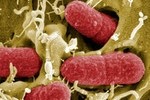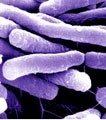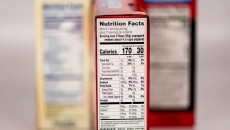Five-year ‘100K Genome Project’ aims to speed foodborne pathogen analysis

The Food and Drug Administration (FDA) and the Centers for Disease Control and Prevention (CDC) said that creating a publicly available database with pathogens’ genetic codes could allow researchers to identify bacteria within hours or days, compared to the current delay between diagnosis and genetic analysis of around a week.
FDA Commissioner Margaret Hamburg said in a statement: “This important project will harness the cutting-edge technology of genome sequencing to advance our understanding of and response to foodborne outbreaks. FDA is pleased to contribute scientific and technical expertise necessary to create and maintain this foodborne pathogen database which will be fully accessible and have long-lasting impact on protecting public health.”
Dubbed “The 100K Genome Project”, the collaboration is a five-year initiative to sequence the genomes of foodborne pathogens including Salmonella, Listeria, and E. coli.
The ultimate goal is to make the food supply safer for consumers, by speeding the testing of raw ingredients and finished products, as well as samples taken during investigations of foodborne illness outbreaks.
“We see this project as a way to improve quality of life for a great many people, while minimizing a major business risk for food producers and distributors,” said Mike McMullen, president of Agilent’s Chemical Analysis Group, which is providing scientific expertise and funding to support some activities related to the project at UC Davis.
UC Davis is coordinating the sequencing, which will be carried out at its new BGI@UC Davis genome sequencing facility.
The FDA has already completed more than 500 Salmonella whole genome draft sequences, and will also provide thousands of other strains for sequencing, as well as bioinformatic support.
The agencies stressed that identifying pathogens is just one part of the process for controlling foodborne illness. Officials still need to be able to identify the food responsible for an outbreak and its origin, which can be particularly challenging for foods with multiple ingredients in an increasingly global food network.
In the United States, about 48m people fall ill each year as a result of foodborne pathogens, about 128,000 are hospitalized, and about 3,000 die, according to CDC estimates.
















